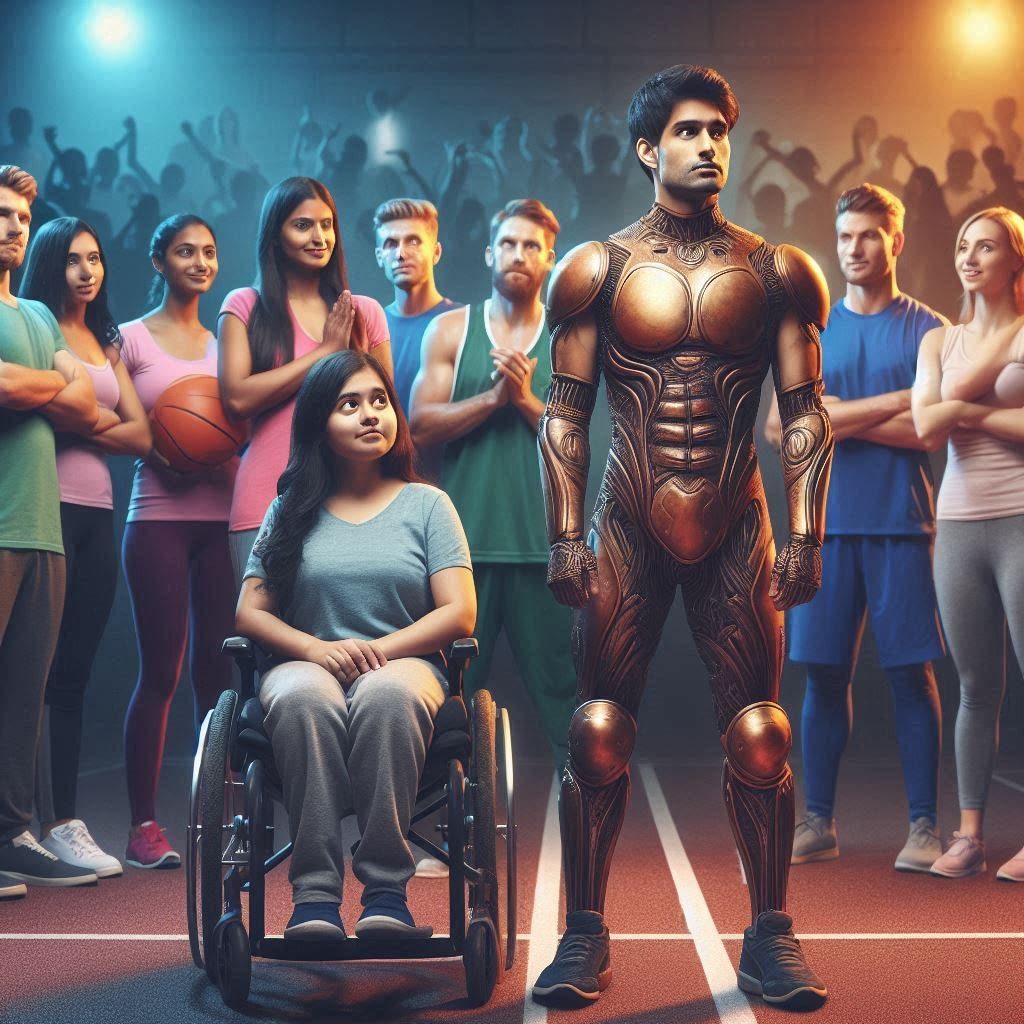Breaking the Silence
Introduction
In the adrenaline-fueled arena of sports, where dreams collide with sweat-soaked jerseys, women athletes have etched their mark. Yet, beneath the roar of the crowd and the thrill of victory, a quieter struggle persists—one that revolves around sponsorship, gender bias, and the moral compass of those who hold the purse strings.
The Gender Disparity in Sports Sponsorships
Let’s confront the stark reality: women’s sports sponsorships remain a mere whisper in a cacophony of endorsements. Recent statistics reveal that women’s sports account for a paltry 0.4% of all sponsorships. This glaring disparity raises critical questions about the role of sponsors, media coverage, and societal biases.
Media Coverage: A Double-Edged Sword
Media shapes perceptions, and in the realm of sports, it wields immense power. Unfortunately, female athletes receive a disproportionately small share of the spotlight. While nearly 40% of athletes are women, they garner a mere 2%-4% of media coverage in the United States. The more an athlete graces our screens, the more likely they are to attract sponsors. But when media perpetuates gender stereotypes, it perpetuates inequality.
Stereotyping and Appearance Bias
Male athletes are often evaluated based on their prowess, fame, and athletic abilities. In contrast, female athletes face a different lens—one that focuses on appearance rather than achievement. Consider athletic clothing designs: male athletes’ outfits emphasize functionality, while female athletes’ attire often exposes the torso and cleavage. The message? Athletic ability takes a backseat to femininity and attractiveness. This perpetuates the myth that only conventionally attractive women deserve sponsorship.
Examples of Sexism in Sports Advertising
Let’s shine a spotlight on some real-world instances of sexism that women face in sports advertising:
Hyper-Sexualization: Despite their athletic achievements, female athletes are often portrayed in hyper-sexualized ways. Magazine covers, billboards, and commercials frequently emphasize their physical appearance over their skills. For instance, imagery of female surfers may still be highly sexualized and objectified, overshadowing their talent.
Unequal Pay: Sponsorship deals often mirror the gender pay gap. Male athletes continue to secure lucrative contracts, while their female counterparts struggle to secure equitable sponsorships. Brands must recognize that investing in women isn’t just a moral imperative—it’s a smart business move.
Underrepresentation: Women sports journalists remain a minority, often the only woman in the room or at the table. They’re forced to constantly prove themselves, navigating an environment that is far too often unsafe. Subtle and not-so-subtle sexism persists, requiring them to work twice as hard for half the opportunities.
The Future Of Women’s Sports Advertising
Despite the challenges, hope glimmers are on the horizon for a better understanding and representation.
Changing Perceptions: Brands and sponsors are increasingly recognizing the value of associating with women’s sports. They’re moving beyond traditional gendered marketing strategies, investing in women’s sports to promote values like diversity, inclusivity, and empowerment.
Economic Impact: Investing in women’s sports yields significant returns. Growing fan bases and engagement levels present opportunities for ticket sales, merchandise, and media rights. Supporting women’s sports is a complex issue but if done right it can enhance a brand’s reputation and customer loyalty.
Digital Revolution: Social media platforms, streaming services, and mobile apps provide new and clever avenues and connections for branding & engaging with fans and promoting female athletes with the sport. Personalized and interactive marketing campaigns allow brands to connect deeply with audiences.
The Moral Dilemma For Sponsors
Sponsors occupy a pivotal position in shaping the sports landscape. Their investments can uplift athletes, amplify voices, and drive change. But with great power comes great responsibility. Herein lies the moral dilemma:
Financial Gain vs. Social Responsibility
Sponsors must weigh financial gains against their social impact. While male athletes secure lucrative deals, their female counterparts grapple with securing equitable sponsorships. It’s time for sponsors to recognize that supporting women isn’t just a moral imperative—it’s a smart business move. Women’s sports audiences represent an untapped market, waiting to be engaged.
Challenging the Status Quo
Enter initiatives like Siren Sport, which challenge the male-dominated sports media landscape. Siren Sport aims to create opportunities for women, disrupt stereotypes, and amplify their voices. By supporting such endeavors, sponsors can rewrite the narrative and redefine success.
Is Female Sports Worth Advertising
The Myth of Limited Interest
Myth: “Women’s sports don’t attract enough viewership or interest to justify advertising investment.”
Reality: While it’s true that women’s sports historically received less media coverage, this narrative is changing. The 2019 FIFA Women’s World Cup shattered records, drawing over a billion viewers globally. The Women’s National Basketball Association (WNBA) has seen steady growth in attendance and TV ratings. The truth is, interest exists—it’s just a matter of amplifying it.
The Power of Representation
Myth: “Female athletes lack star power and marketability.”
Reality: Representation matters. When young girls see women excelling in sports, they dream bigger. Brands that invest in female athletes send a powerful message: “You belong here.” Serena Williams, Simone Biles, and Megan Rapinoe are not just athletes; they’re cultural icons. Their stories resonate beyond the field, inspiring generations.
Untapped Market Potential
Myth: “Women’s sports won’t yield substantial returns.”
Reality: Women’s sports audiences represent an untapped market. Brands that recognize this potential can tap into loyal fan bases. From merchandise sales to ticket revenue, the economic impact is real. Plus, women’s sports offer a chance to engage with diverse demographics—mothers, daughters, and fans who appreciate skill over gender.
Breaking Stereotypes
Myth: “Female athletes can’t compete with male athletes.”
Reality: Athletic prowess knows no gender. Women’s sports showcase resilience, teamwork, and sheer talent. By advertising women’s sports, we challenge stereotypes and redefine success. Imagine a world where female athletes are celebrated for their achievements, not their appearance.
The Ethical Imperative
Myth: “Sponsoring women’s sports is a charity, not a business move.”
Reality: It’s both. Brands have a moral responsibility to promote equality. But let’s not forget the business case: supporting women’s sports enhances brand reputation, attracts socially conscious consumers, and fosters loyalty. It’s a win-win.
Is Sexism Acceptable in Sports and Advertising?
The Persistent Problem
Myth: “Sexism is a relic of the past; it doesn’t exist in modern sports and advertising.”
Reality: Unfortunately, sexism remains deeply entrenched. From unequal pay to gender stereotypes, it persists across the sports landscape. Ignoring it perpetuates the problem.
Harmful Gender Stereotypes
Myth: “Gender stereotypes in advertising are harmless.”
Reality: These stereotypes harm both men and women. When ads portray women as solely homemakers or men as incapable of nurturing, they reinforce harmful norms. The recent ban on gender stereotypes in UK advertising acknowledges their potential harm.
Objectification vs. Empowerment
Myth: “Sexualized portrayals of female athletes empower them.”
Reality: Objectification isn’t empowerment. While celebrating athleticism is crucial, reducing women to mere sex symbols undermines their achievements. Authentic representation matters.
The Economic Argument
Myth: “Sexist ads sell better.”
Reality: Research suggests otherwise. Consumers increasingly favor brands that champion equality and inclusivity. Brands that break free from sexist tropes resonate with diverse audiences.
Responsibility of Advertisers
Myth: “Advertisers have no moral duty beyond profits.”
Reality: Brands wield immense influence. They can perpetuate harmful norms or challenge them. Responsible advertising contributes to a more equitable society.
Championing Change: Sports Teams and the Fight Against Sexism in Advertising
The Power of Influence
Sports teams hold immense influence. Their actions resonate beyond the field, shaping societal norms and values. When teams take a stand, they send a powerful message: “We won’t tolerate sexism.”
The Ethical Imperative
Myth: “Sports teams should prioritize profits over ethics.”
Reality: Ethical responsibility transcends financial gains. By rejecting sexist advertising, teams uphold integrity, respect, and fairness. They become role models for fans, sponsors, and fellow athletes.
Unbundling Sponsorships
Myth: “Sponsors dictate terms; teams have no say.”
Reality: Teams can renegotiate sponsorships. Some progressive teams have “unbundled” deals, collaborating deeply with sponsors who align with their values. It’s time to prioritize partnerships over mere visibility.
Amplifying Positive Narratives
Myth: “Sexist ads sell better.”
Reality: Research suggests otherwise. Fans appreciate authenticity. Teams can amplify positive narratives—celebrating athletes’ skills, resilience, and diversity. Imagine ads that inspire, not objectify.
Leading by Example
Myth: “Change starts elsewhere.”
Reality: Sports teams are catalysts. By saying no to sexism, they challenge the status quo. They pave the way for a more inclusive, respectful sports industry.
Conclusion
The future of women’s sports advertising lies in authenticity, inclusivity, and genuine storytelling. Let’s celebrate athleticism, challenge biases, and uplift female athletes. As brands, sponsors, and fans, we hold the power to shape this narrative. So, let’s rewrite the playbook—one where women’s sports shine brightly, unburdened by sexism.
As we navigate this terrain, let’s question outdated norms. Let’s celebrate athletes for their skills, not their appearance. Let’s create ads that uplift, inspire, and break free from the shackles of sexism. The playing field isn’t level yet, but together, we can rewrite the rules.
Sports teams aren’t bystanders; they’re change-makers. Let’s rewrite the playbook—one where equality triumphs, and sexist ads fade away. Together, we can create a future where sports inspire, uplift, and unite.
In the dynamic arena of sports, where passion meets perseverance, we find ourselves at a crossroads. The battle against sexism in sports advertising is not merely a game—it’s a societal shift waiting to happen. Here’s what we’ve learned:
Visibility Matters: Women’s sports deserve more than a fleeting spotlight. By amplifying their stories, we rewrite the narrative—one where talent knows no gender.
Sponsors as Allies: Brands and sponsors hold immense power. It’s time to move beyond profit margins and embrace social responsibility. Supporting women’s sports isn’t charity; it’s an investment in a brighter, more inclusive future.
Challenging Norms: Sexism isn’t an inevitability; it’s a choice. Let’s challenge stereotypes, celebrate athleticism, and redefine success. When we say no to sexist ads, we say yes to progress.
Sports Teams as Catalysts: Sports teams aren’t mere players; they’re change-makers. By standing up to sexism, they lead by example. Let’s unbundle sponsorships, amplify positive narratives, and champion equality.
As fans, sponsors, and athletes, we hold the playbook. Let’s turn the page—one where women’s sports shine brightly, unburdened by bias. Join the conversation, use the hashtag #LevelThePlayingField, and let’s create a legacy of respect, fairness, and triumph.
Join the Discussion:
As we navigate this complex terrain, let’s rally behind change. Let’s demand equal media coverage, fair sponsorships, and a world where talent knows no gender. Use the hashtag #LevelThePlayingField to join the conversation. Together, we can break the silence, shatter stereotypes, and propel women’s sports toward a brighter future.



Your commitment to sustainability is commendable. The eco-friendly practices you share are small steps that collectively make a big difference. Let’s save the planet together!
Очень актуальные события индустрии.
Важные события мировых подуимов.
Модные дома, торговые марки, гедонизм.
Свежее место для модных людей.
https://balenciager.ru/
Точно важные новинки мира fashion.
Все события мировых подуимов.
Модные дома, бренды, высокая мода.
Свежее место для трендовых людей.
https://worldsfashion.ru/